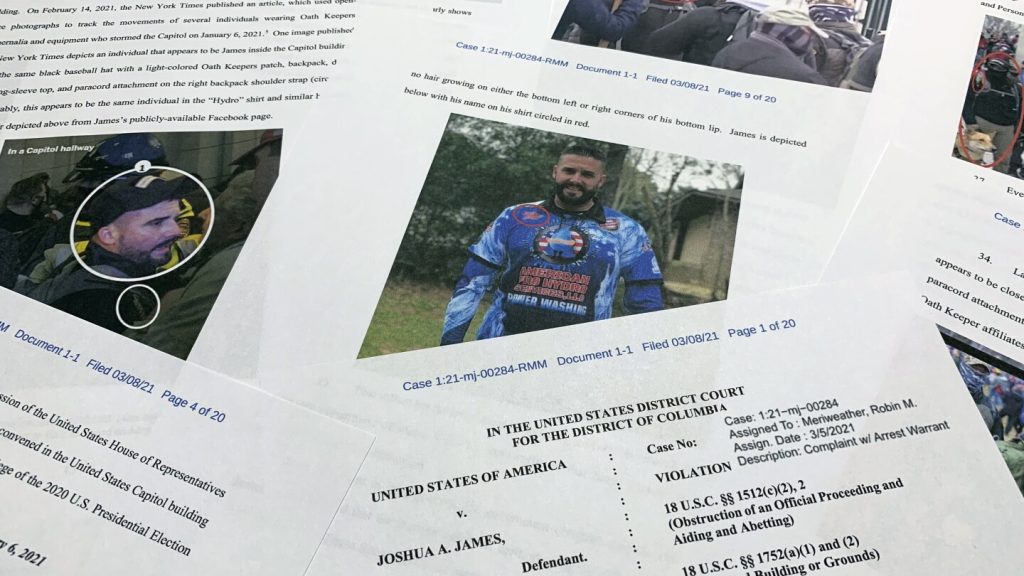A U.S. Army veteran, Joshua James, was sentenced to probation for his role in a violent plot by members of the far-right Oath Keepers extremist group to keep Donald Trump in the White House after he lost the 2020 presidential election. James was the first person charged in the U.S. Capitol riot to plead guilty to seditious conspiracy, the most serious crime arising from the Jan. 6 attack by a mob of Trump supporters. He cooperated with the Justice Department’s investigation but did not testify at trials for other Oath Keepers members. James was sentenced to three years of probation, including time in a residential re-entry center and home detention, expressing remorse and acknowledging that his actions put police officers in danger on Jan. 6.
U.S. District Judge Amit Mehta spared James from a prison sentence, wanting to give him a chance to put his life back together. The judge praised James for his military service and his courage in admitting guilt and cooperating with the government. President-elect Donald Trump has threatened to pardon Capitol rioters, with Mehta expressing concerns about pardoning Oath Keepers founder Stewart Rhodes. Other judges presiding over Jan. 6 cases have strived to be fair and do justice, focusing on the legal aspects rather than politics. Prosecutors recommended a prison sentence for James, but his cooperation played a significant role in understanding Rhodes’ state of mind and how he inspired followers to join the plot.
James was the first defendant in over 60 years to enter a pretrial agreement with prosecutors to plead guilty to seditious conspiracy. His attorneys noted that James provided pivotal information about the Oath Keepers in his debriefs with investigators and grand jury testimony. In contrast, Rhodes, the Oath Keepers’ founder, was sentenced to 18 years in prison for his role in the conspiracy. James was a regional leader for the Oath Keepers in Alabama and had direct contact with Rhodes before the Jan. 6 riot. Prosecutors highlighted James’ leadership role in the conspiracy and the significant impact he had on other individuals who acted at his instruction.
Before enlisting in the Army at 18, James was wounded in a car bombing in Iraq at the age of 19, ending his military career prematurely. The loss of military benefits due to his conviction cost James thousands of dollars per month in disability retirement payments. Despite these challenges, his attorneys emphasized his sense of purpose and self-worth, which were replaced by feelings of guilt and regret over an unresolved military career. James and other Oath Keepers stored firearms in hotels on the outskirts of Washington, D.C., for possible use but never deployed the guns on Jan. 6. Prosecutors detailed how James and other Oath Keepers marched in a military-style formation towards the Capitol, with James aiding the group’s entry through the East Rotunda doors.
Inside the Capitol, James confronted a police officer, grabbed his vest, and pulled him towards the mob, shouting, “Get out of my Capitol!” After being pushed out of the building, James reunited with Rhodes and other Oath Keepers. Two days later, James met Rhodes at a restaurant in Alabama, where Rhodes expressed gratitude for James’s actions and advised him to alter his appearance to conceal his identity. Prosecutors commended James for admitting his guilt and cooperating with the government, ensuring that the Jan. 6 attack remains in the nation’s long-term memory. Mehta described James as a true American hero for his military service and the actions he took to make amends for his involvement in the conspiracy.















